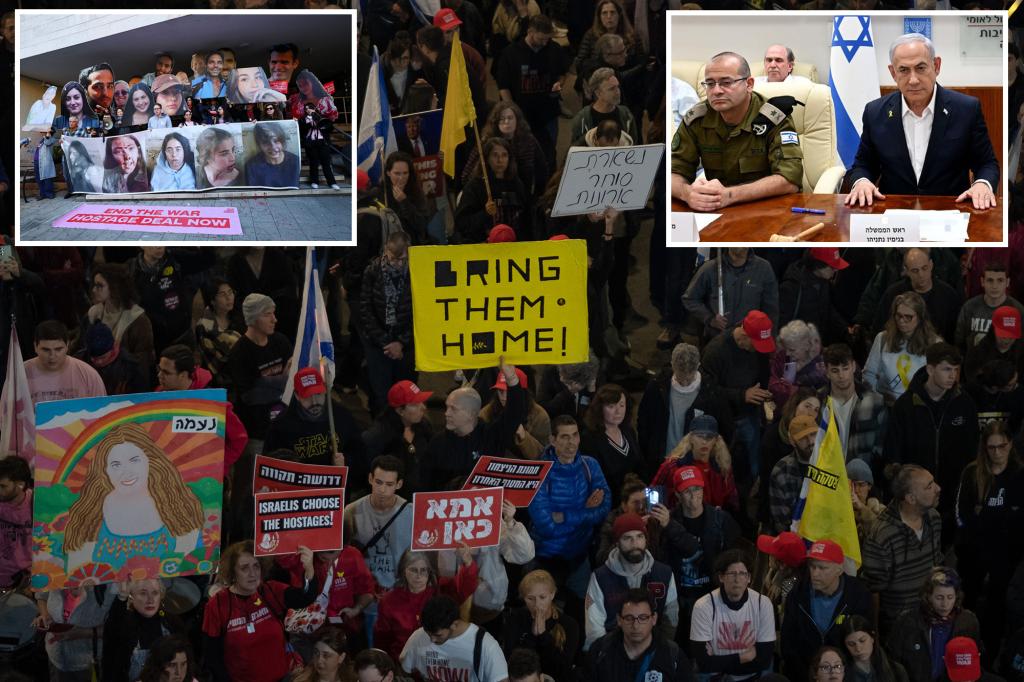The protracted conflict between Israel and Hamas, spanning over 15 months, has witnessed a potential turning point with a reported “breakthrough” in cease-fire negotiations. Mediated in Qatar, these talks, involving envoys from both outgoing President Biden and incoming President Trump, extended into the early hours of Monday morning, sparking cautious optimism for an end to the hostilities. Central to the discussions is the fate of hostages held by Hamas, with the militant group hinting at the possible release of a portion of the captives in exchange for certain concessions. While a definitive agreement remains elusive, the intensive negotiations signify a significant step towards resolving the complex and deeply entrenched conflict. The next 24 hours are considered crucial for finalizing a deal, with all parties acutely aware of the approaching deadline of President-elect Trump’s inauguration.
The negotiations represent a delicate balancing act, with both sides seeking to secure favorable terms while addressing the urgent humanitarian crisis surrounding the hostages. Hamas has indicated its willingness to free over 30 hostages, although the exact number and their condition remain uncertain. This ambiguity underscores the sensitive nature of the talks and the challenges involved in verifying the status of the captives. In return for the release of hostages, Hamas is demanding the freeing of its own imprisoned members, a contentious point that has been a major stumbling block in previous negotiation attempts. The group’s public pronouncements reaffirm their commitment to securing the release of their operatives, describing it as imminent and a pledge to their supporters.
The involvement of both Biden and Trump’s representatives highlights the significance of the negotiations and the shared interest in resolving the conflict. Outgoing President Biden’s administration has been actively involved in mediating between the two sides, while President-elect Trump has taken a more assertive stance, warning Hamas of severe consequences if the hostages are not released before his inauguration. The presence of Steve Witkoff, Trump’s incoming envoy, at the Qatar talks underscores the incoming administration’s commitment to actively engaging in the process from the outset. This dual representation signifies a unified front from the US, albeit with potentially differing approaches, in pushing for a resolution.
The upcoming deadline of President-elect Trump’s inauguration on January 20 adds a sense of urgency to the negotiations. Trump’s previous statements, warning of “hell to pay” if the hostages are not released, have set a firm marker for Hamas. This deadline, while potentially adding pressure, also serves as a focal point for both parties to intensify their efforts and reach a conclusive agreement. The involvement of Trump’s designated envoy suggests that the incoming administration intends to prioritize this issue and maintain a strong stance in its dealings with Hamas.
The potential breakthrough in the cease-fire talks represents a glimmer of hope for a region ravaged by conflict. The release of hostages, if achieved, would be a significant humanitarian victory and a crucial step towards building trust between the two sides. However, the complex dynamics of the conflict, the deeply rooted mistrust, and the unresolved issues surrounding the terms of a lasting cease-fire necessitate cautious optimism. The next 24 hours will be critical in determining whether the current momentum can translate into a concrete agreement and a path towards a more peaceful future.
The successful resolution of the hostage crisis and the establishment of a sustainable cease-fire are paramount to restoring stability in the region. This requires not only the release of captives but also addressing the underlying causes of the conflict, including the blockade of Gaza and the ongoing cycle of violence. The involvement of international mediators and the sustained engagement of both Israeli and Palestinian leadership are essential for achieving a lasting peace. The current negotiations, while fragile, offer a crucial opportunity to break the cycle of conflict and create a more hopeful future for all involved. While significant challenges remain, the progress made in these talks signifies a potential turning point and a chance to build a more secure and prosperous future for both Israelis and Palestinians.

